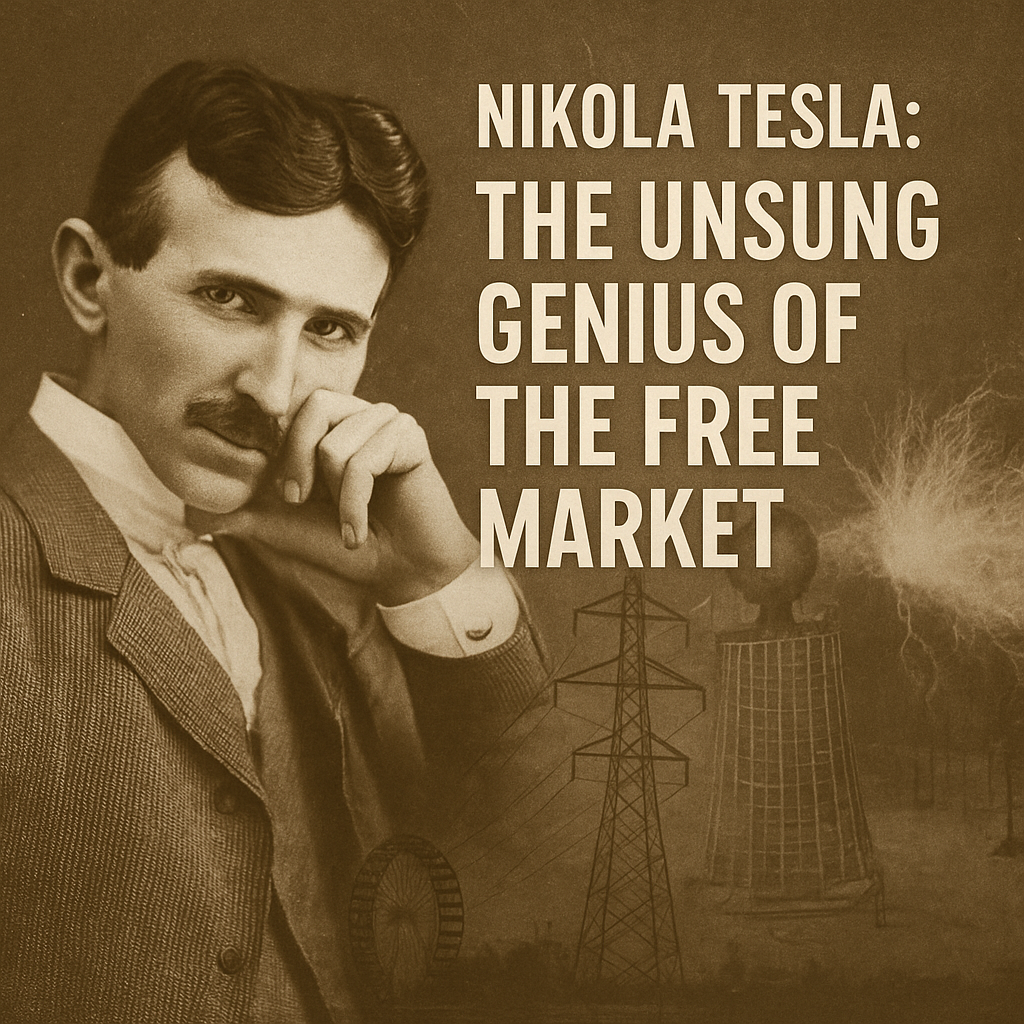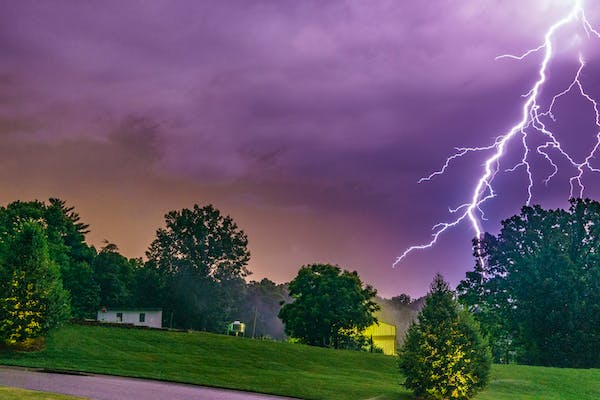“If you want to find the secrets of the universe, think in terms of energy, frequency and vibration.” -Nikola Tesla
When people speak of innovation, progress, and the rise of the modern world, names like Steve Jobs or Elon Musk dominate the headlines. But over a century ago, one man laid the foundation for much of our technological world. His name? Nikola Tesla — inventor, visionary, immigrant, and one of history’s boldest embodiments of free market ideals.Tesla didn’t just dream big. He took his genius to the marketplace.
From the Ground Up: A Self-Made Inventor
Born in 1856 in modern-day Croatia, Tesla arrived in America with little more than ambition and a mind brimming with ideas. Like many who immigrate in search of freedom and opportunity, Tesla believed that merit, not status, should determine success.
He stood in stark contrast to the monopolistic forces of his day. While others sought to control and consolidate, Tesla sought to empower and expand. He wasn’t interested in hoarding power — literal or figurative — but in liberating it for the world.
AC vs DC: A Market-Driven Revolution

Tesla’s most famous battle — the “War of the Currents” — wasn’t just a scientific debate. It was a contest of free enterprise vs. corporate monopoly.
While Thomas Edison (backed by financiers and government influence) pushed direct current (DC), Tesla, supported by entrepreneur George Westinghouse, championed alternating current (AC) — a far superior, scalable, and cost-effective solution.
In true free market fashion, Tesla’s innovation won. Not because of favors, but because it was better, cheaper, and more efficient. The market responded accordingly.
Capital, Not Cronyism
Tesla wasn’t just an inventor — he was a businessman navigating the volatile currents of a growing American economy. He pitched, partnered, raised capital, and filed patents. He leveraged his ideas into value.
His partnership with Westinghouse is a powerful reminder that visionaries need capital, and capital needs visionaries. Together, they brought electricity to the 1893 World’s Fair in Chicago — an event that lit up the future and dethroned the entrenched powers of the past.
True Innovation Demands Freedom
Tesla thrived in an environment where ideas could be tested, bought, and scaled. No central planner told him what to invent. No bureaucrat dictated his creativity. He chased dreams no one else dared to imagine — wireless energy, remote control, electric motors.
And while many of his ideas were ahead of their time, the fact that he could attempt them at all, unfettered, is a testament to the power of individual liberty and the marketplace of ideas.
Tesla’s Legacy: A Challenge to Us All
Tesla died nearly penniless, his ideas often misunderstood and only truly celebrated posthumously. But he never compromised his ideals. He remained loyal to the pursuit of truth, innovation, and human progress — even when it cost him everything.
And perhaps that’s the ultimate free market principle: You risk everything, not for guaranteed success, but for the freedom to try.
Let Tesla’s life be a reminder: the free market rewards courage, not comfort. It celebrates the outlier, the rebel, the visionary — the one who dares to defy the current.And that, dear reader, is why Tesla belongs not just in the halls of science, but in the heart of every entrepreneur who still believes in building a better world through freedom, risk, and relentless creativity.




